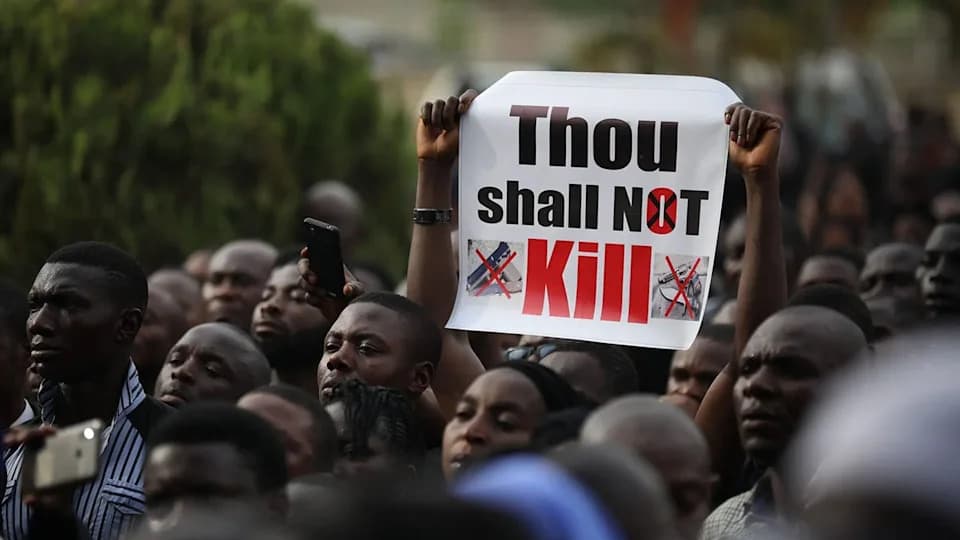JNIM, an Al‑Qaeda‑linked group in Mali, has turned kidnapping wealthy foreigners into a major funding stream. A reported ransom of at least $50 million for an Emirati sheikh — described by analysts as the highest known in the region — reportedly financed prisoner releases and significantly boosted the group's resources. Experts warn the funds will buy weapons, pay fighters, and sustain an economic blockade that deters foreign investment, particularly in western Mali’s mining sector. Governments including the US and UK have withdrawn non‑essential personnel and urged citizens to leave as the threat grows.
Royal Ransom: How a Reported $50M Payout Boosted Mali’s Jihadists and Fueled an "Economic Jihad"

Royal ransom fuels JNIM’s ‘economic jihad’
At least $50 million was reportedly paid two weeks ago to jihadists linked to Al‑Qaeda to secure the release of an Emirati sheikh abducted near Bamako — a payment that underlines how wealthy hostages have become a major revenue source for militants in Mali.
The Group for the Support of Islam and Muslims (JNIM) has combined a crippling fuel blockade with a campaign of high‑value kidnappings, turning the abduction of foreign nationals into a central pillar of what it calls an "economic jihad." The strategy is intended to intimidate investors, paralyse key sectors of the economy and pressure the junta that has struggled to contain the insurgency since coups in 2020 and 2021.
Escalation since mid‑2025
In June, JNIM warned it would target any foreign companies operating in Mali or businesses working with the Malian government without its approval. Since then the group has reportedly attacked and burned tankers bringing fuel from Senegal and Ivory Coast, struck factories and mines, and increased the pace of foreign abductions.
"Between May and October 2025, at least 22 foreign nationals have been abducted — roughly double the previous record of 13 in 2022," said Heni Nsaibia, Senior West Africa Analyst at ACLED. Victims include Chinese, Indian, Egyptian, Emirati and Iranian nationals, alongside Europeans such as a Serbian, a Croat and a Bosniak.
The reported ransom and its effects
According to sources close to negotiations and a Malian security official, JNIM demanded $50 million after seizing a member of the United Arab Emirates royal family involved in the gold trade near Bamako on 26 September. Two business partners — an Iranian and a Pakistani — were taken with him. An initial payment of 400 million CFA francs (more than $700,000) was reportedly sent as proof the hostages were alive.
The trio were freed at the end of October after what the negotiation source described as a ransom of "$50 million at least." Who paid the ransom has not been confirmed. A Malian security source added that JNIM also obtained the release of around 30 of its prisoners held by Malian intelligence services, and that Malian soldiers were freed in the same exchange.
"That sum represents the highest known ransom in the region and constitutes a major financial boost for JNIM," said Heni Nsaibia.
Analysts warn the proceeds will be used to buy weapons — including commercial drones, explosives and small arms — and to pay fighters' salaries. Rida Lyammouri of the Policy Center for the New South said the money will help JNIM sustain its military operations and the economic blockade of Bamako for an extended period.
Wider implications
Many abductions occur in western Mali, where roughly 80% of the country’s gold is mined, according to the Soufan Centre. At least 11 Chinese citizens have been taken in attacks on seven industrial sites — six run by Chinese companies — and recent incidents included five Indian employees of an electricity firm and an Egyptian worker.
"Targeting foreign nationals drives away investment and undermines a key revenue stream for the Malian junta," said Liam Karr of the American Enterprise Institute.
In response to rising threats, the United States and United Kingdom recently ordered the withdrawal of non‑essential personnel from Mali, and several embassies have urged their citizens to leave. Analysts say the withdrawal of some foreign forces and the arrival of new security partners has left gaps that jihadist groups have exploited.
Note: Many details—especially the identity of the ransom payer and some negotiation elements—remain unconfirmed by independent sources. Reporting reflects accounts from negotiation sources, Malian security officials and regional analysts.
Help us improve.




























